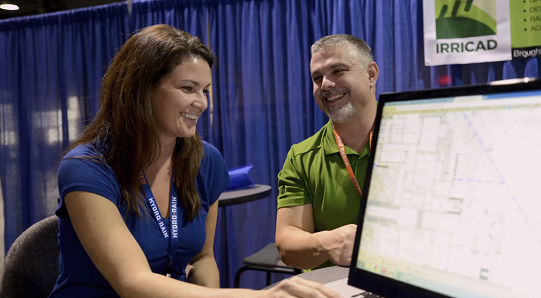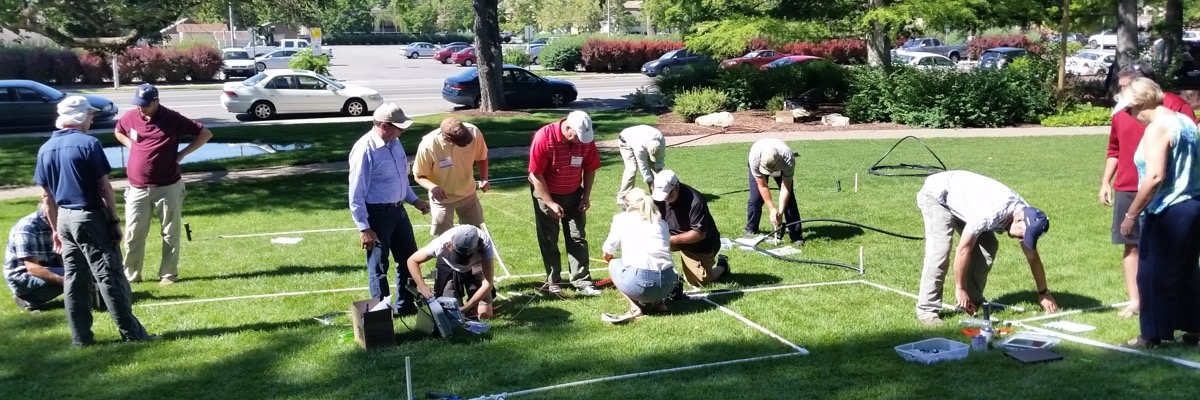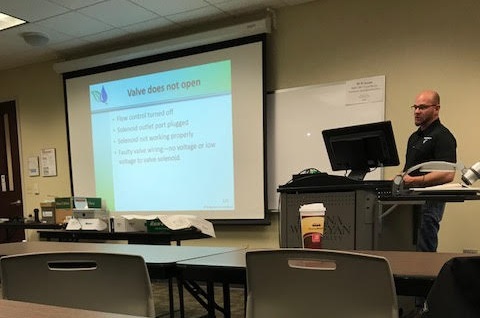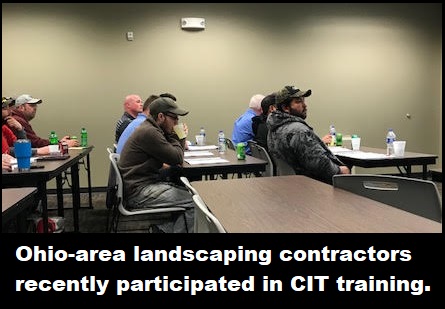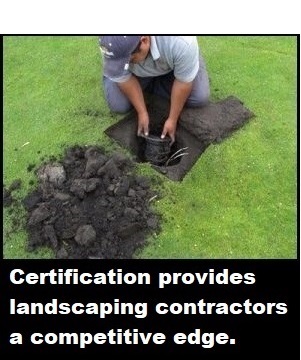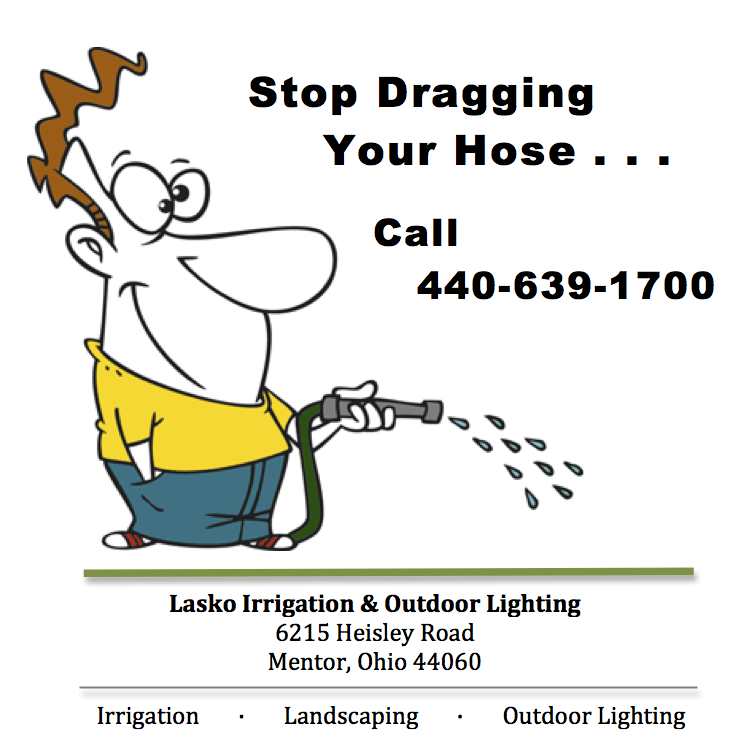
by Tom Barrett | Aug 7, 2019
Ever Wonder How to Become
WaterSense Certified?
Becoming a certified WaterSense professional demonstrates to your customers that you have the knowledge and experience to help them save both water and money.
And certification entitles you to exclusive EPA benefits. Such as:
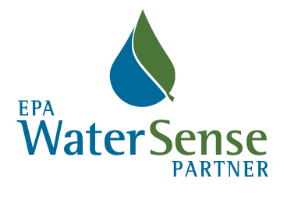 Inclusion in the WaterSense online Directory of Certified Professionals.
Inclusion in the WaterSense online Directory of Certified Professionals.- Work opportunities for new home projects, federal facilities, and LEED® projects.
- Use of the WaterSense promotional label on business cards and marketing items.
- Increased exposure to customers through national recognition from EPA as an environmental steward.
- Access to helpful tools and materials created by EPA.
Certification Programs
WaterSense offers the following certification programs for landscape irrigation professionals:
Irrigation System Design Program
The design program teaches you how to tailor irrigation systems to match the surrounding landscape and local climate conditions. This course is offered by the national Irrigation Association.

To become a Certified Irrigation Designer (CID), you must:
- Register for the exam. Recommended: three years of irrigation-related experience or education in an irrigation-related field.
- Pass the general landscape/turf exam. The four-hour general landscape/turf exam includes 150 equally weighted, multiple-choice questions on irrigation equipment, hydraulics, system components, scheduling, precipitation and application rates, spacing, soil-water-plant relationships, efficiency/uniformity, economics and pumps.
- Pass a landscape/turf specialty irrigation exam. Candidates have four hours to complete a specialty exam in commercial, golf course or residential landscape irrigation. See the Certification Candidate Handbook for details on specialty exam content. Candidates may not take both the general landscape/turf exam and one of the landscape/turf specialty exams on the same day.
- Comply with the Select Certified Code of Ethics.
- Remain in good standing. CIDs must submit 20 continuing education units per two-year cycle.
Irrigation System Installation and Maintenance Program
The installation and maintenance program teaches you how to select the appropriate equipment, lay out the site, and ensure proper scheduling for optimal irrigation system performance.

To become a Certified Irrigation Contractor (CIC), you must:
- Register for the exam. Recommended: three years of irrigation-related field experience.
- Pass the irrigation contractor exam. The 3½-hour exam includes 150 equally weighted, multiple-choice questions on irrigation design, irrigation installation, irrigation scheduling, water management and conservation, maintenance and repair, federal laws and codes, and general business management. Candidates have 3½ hours to complete the exam.
- Comply with the Select Certified Code of Ethics.
- Remain in good standing. CICs must submit 20 continuing education units per two-year cycle.
Irrigation System Audits Program
The irrigation auditing program teaches you how to identify systems that are distributing water unequally or inefficiently and determine how to improve performance.

Are You Already Certified by the IA?
If you already have an Irrigation Association certification, and wish to become WaterSense certified, you’re in luck!
All you have to do is apply for the WaterSense certification and agree to uphold the terms of the WaterSense Partnership Agreement. No fees are required to become a WaterSense certified partner if you already hold an Irrigation Association certification.
To become a Certified Landscape Irrigation Auditor (CLIA), you must:
-
- Register for the exam. Recommended: one year of irrigation-related work experience.
- Pass the irrigation auditor exam. The three-hour exam includes 125 equally weighted, multiple-choice questions on irrigation audit procedures, soil-plant relationships, irrigation scheduling and equipment/technology.
- Submit a landscape irrigation audit. Audits must be completed independently and verified by an IA-certified professional in good standing within one year of acceptance into the certification program. (See audit guidelines and worksheets.)
- Comply with the Select Certified Code of Ethics.
- Remain in good standing. CLIAs must submit 20 continuing education units per two-year cycle.
Watershed Wise Landscape
Professional Program
In addition, WaterSense has certified the Watershed Wise Landscape Professional (WWLP) program, offered through Green Gardens Group (G3):
The WWLP training presents a holistic watershed approach to outdoor water use efficiency, emphasizing plant, soil, water relationships, and rainwater as a resource. Certified professionals assess the proper functioning of irrigation systems, perform irrigation water audits, recommend watering schedules, and conduct whole-site evaluations. This certification also requires a solid understanding of the principles of watershed management in the landscape. The program is available throughout the United States.
To receive this certification, you must:
- Complete the two-day (16 hour) WWLP coursework offered in your area by a G3 Qualified WWLP Trainer.
- Successfully pass the WWLP certification exam.
- Submit a landscape site evaluation form.
- Maintain annual CEU requirements.
For more information, contact Green Gardens Group.
Cheaper in the Long Run
If You Join the IA
All exam fees for programs offered by the national Irrigation Association are $250 for national IA members and $495 for non-members. If you’re not currently an IA member, you can save money by joining now. Here’s how:
- Because the Ohio IA is an affiliate member of the national association, all Ohio IA contractors are eligible for a $100 discount off of the $520 regular IA membership rate.
- The IA membership year is Jan. 1-Dec. 31. If you join midyear, you must remit full-year dues ($420) with your IA membership application; however, your dues will be prorated in the second year of membership.
Sources:
EPA
Irrigation Association
Green Gardens Group

by Tom Barrett | Jan 8, 2019
Now’s the Time to Become a CIT!
On February 28, 2019, Wolf Creek Company is sponsoring a full-day CIT training session.
You’ll learn about gluing and repairing PVC pipe, installing nozzles and adjusting heads, setting and repairing electric valves, and field and controller wiring techniques.
This is a recommended review for the CIT exam. The session will begin at 8:00 a.m. at Wolf Creek Company, 6700 Huntley Road in Columbus, Ohio.
Cost is $100 per attendee, and seats are limited!
Contact your Wolf Creek Representative
for more information.

Why Certification?
Certification gives you a competitive edge. By becoming a Certified Irrigation Technician you can:
 Add instant credibility with customers and employers.
Add instant credibility with customers and employers.
 Increase job opportunities.
Increase job opportunities.
 Demonstrate your commitment to efficient water management.
Demonstrate your commitment to efficient water management.
 Qualify for the EPA WaterSense program.
Qualify for the EPA WaterSense program.
CIT Overview
CITs are field technicians who install, maintain and repair irrigation systems. Typical duties include:

 Cutting and joining pipe, as well as knowing the limitations of different piping systems and understanding basic hydraulics.
Cutting and joining pipe, as well as knowing the limitations of different piping systems and understanding basic hydraulics.
 Laying out and installing piping and water delivery components; backflow prevention components; mechanical, hydraulic and electrical irrigation controls; and other irrigation system components.
Laying out and installing piping and water delivery components; backflow prevention components; mechanical, hydraulic and electrical irrigation controls; and other irrigation system components.
 Troubleshooting and repairing irrigation components and systems.
Troubleshooting and repairing irrigation components and systems.
Becoming a Certified Irrigation Technician
To become a CIT, you must:
 Register for the exam. Recommended: six months or 1,000 hours of irrigation-related field experience.
Register for the exam. Recommended: six months or 1,000 hours of irrigation-related field experience.
 Pass the irrigation technician exam. The three-hour exam includes 100 equally weighted, multiple-choice questions on basic irrigation principles, basic electrical principles and basic hydraulics.
Pass the irrigation technician exam. The three-hour exam includes 100 equally weighted, multiple-choice questions on basic irrigation principles, basic electrical principles and basic hydraulics.
 Comply with the Select Certified Code of Ethics.
Comply with the Select Certified Code of Ethics.
 Remain in good standing. CITs must submit 20 continuing education units per two-year cycle.
Remain in good standing. CITs must submit 20 continuing education units per two-year cycle.
CIT Exam Fees
 Irrigation Technician Exam Fee — $175 (IA Member), $300 (Nonmember)
Irrigation Technician Exam Fee — $175 (IA Member), $300 (Nonmember)
- Exam Retake Fee — $175 (IA Member), $300 (Nonmember)
- Annual Renewal Fee (one certification) — $50 (IA Member), $100 (Nonmember)
- Annual Renewal Fee (two or more certifications) — $100 (IA Member), $150 (Nonmember)

by Tom Barrett | Nov 6, 2018
CIT Training Sponsored by Wolf Creek
CIT training is scheduled from 8:00 a.m. to 5:00 p.m. at Wolf Creek’s Columbus branch, located at 6700-B Huntley Road in Columbus, Ohio.
To register, contact your Wolf Creek representative, or click the registration box above. Space is limited; cost for the training is $100 per attendee.
 Don’t miss out on this opportunity to add instant credibility to employers and increase your marketability, all while demonstrating your commitment to efficient water management!
Don’t miss out on this opportunity to add instant credibility to employers and increase your marketability, all while demonstrating your commitment to efficient water management!
What Exactly Does a CIT Do?
Certified Irrigation Technicians install, maintain and repair irrigation systems.
 This entails knowing the limitations of different piping systems and understand basic hydraulics, in order to properly cut and join pipe.
This entails knowing the limitations of different piping systems and understand basic hydraulics, in order to properly cut and join pipe.
CIT’s lay out, install and repair all irrigation system components, including:
- Piping and water delivery components
- Backflow prevention components
- Mechanical, hydraulic and electrical irrigation controls
To Become a CIT You Must:
- Pass the irrigation technician exam. The three-hour exam includes 100 equally weighted, multiple-choice questions on basic irrigation principles, basic electrical principles and basic hydraulics.
CIT Exam Fees
- Irrigation Technician Exam Fee — $175 (Member), $300 (Nonmember)
- Annual Renewal Fee (one certification) — $50 (Member), $100 (Nonmember)
- Annual Renewal Fee (two or more certifications) — $100 (Member), $150 (Nonmember)

by Tom Barrett | Oct 3, 2018
December 3-7 at the Long Beach Convention
and Entertainment Center
Irrigation Show 2018 is the only national trade show designed specifically for irrigation professionals.
It’s where the irrigation industry comes together to network, learn and promote irrigation. (Did you know it’s also the world’s biggest irrigation trade show?)
Register by Nov. 1 to save on education classes, full registration and exhibits. Discount housing is also open, and attendees can book their hotel online.
To download the Irrigation Association’s 24-page Registration Brochure, click here.
More than 4,000 distributors, dealers, contractors, consultants and growers are expected to attend this year’s event in Long Beach, California. You’ll have the opportunity to:
 Check out new and innovative products, technologies and services.
Check out new and innovative products, technologies and services.
- Learn about the latest business trends and irrigation best practices.
- Network with current business partners and with industry leaders who share the Ohio IA’s commitment to efficient irrigation.
New This Year: Radio Row
Radio Row is a dedicated space for radio stations and podcasts from across the country to provide live broadcasts and interviews with irrigation professionals and experts attending the Irrigation Show. See some of your favorite ag radio and podcast hosts live and in action.
 Extended Floor Hours
Extended Floor Hours
This year, show floor hours have been extended to 10:00 a.m. to 5:00 p.m. on Wednesday, Dec. 5, and 10:30 a.m. to 3:30 p.m. on Thursday, Dec. 6.
Educational Opportunities
You can discover great ideas, learn new skills and earn CEUs with some of the industry’s most experienced professionals. Landscape irrigation topics for educational classes at this year’s Irrigation Show include:
- Landscape Irrigation Design
- Advanced Irrigation Wiring Methods
- Hydraulic Troubleshooting
- Alternative Water for Landscape Irrigation
- Landscape Drip Irrigation Design
- Two-Wire Technology Systems for Landscapes
- The Business of Landscape Irrigation Contracting

One-hour seminars will provide detailed coverage on a focused topic in landscape irrigation. Seminars are open to all attendees with a full registration. Participants will earn 1.00 CEU for each hour. This year’s topics will include:
- Weather-Based Irrigation Controllers
- Low-Impact Development and Irrigation
- Impacts of Irrigation in Building Rating Systems
- Using Drones to Improve Irrigation Management

Certification Exams
Exams for the following certification programs will also be available at this year’s Irrigation Show:
Sources:
Irrigation Association
Landscape Management

by Tom Barrett | Apr 4, 2018
CIT Trainees Learn Basics,
Prepare for Exam
Last month, 18 Ohio-area landscaping contractors participated in Certified Irrigation Technician (CIT) training at two separate sites. These Irrigation Association training sessions were sponsored by Wolf Creek Company and Rain Bird.
During the training, contractors learned the basics of hydraulics and irrigation system installation and maintenance. In addition to an overview of irrigation system components and how they operate, attendees learned how to:
- Glue and repair PVC pipe
- Install nozzles and adjust sprinkler heads
- Set and repair electric valves
- Utilize various field and controller wiring techniques.

Trainees also prepared for the CIT exam, a prerequisite to receiving certification.
CIT Overview
A CIT is an entry-level irrigation field professional, and it is the newest certification offered by the Irrigation Association. CITs install, maintain and repair irrigation systems. Their responsibilities include:
- Cutting and joining pipe, with an understanding of basic hydraulics, as well as the limitations of different piping systems.
- Laying out and installing pipes and water delivery components; backflow prevention components; mechanical, hydraulic and electrical irrigation controls; and other irrigation system components.
- Troubleshooting and repairing all irrigation components and systems.
Becoming a CIT
Certification gives you a competitive edge. By becoming a CIT, you can:
- Add instant credibility with customers and employers.
- Increase job opportunities.
- Demonstrate your commitment to efficient water management.
- Qualify for the EPA WaterSense program.
Interested? Here’s what you have to do:
- Pass the irrigation technician exam. The three-hour exam includes 100 equally weighted, multiple-choice questions on basic irrigation principles, basic electrical principles and basic hydraulics.
CIT Exam Fees
- Irrigation Technician Exam Fee — $175 (Member), $300 (Nonmember)
- Exam Retake Fee — $175 (Member), $300 (Nonmember)
- Annual Renewal Fee (one certification) — $50 (Member), $100 (Nonmember)
- Annual Renewal Fee (two or more certifications) — $100 (Member), $150 (Nonmember)

 Inclusion in the WaterSense online Directory of Certified Professionals.
Inclusion in the WaterSense online Directory of Certified Professionals.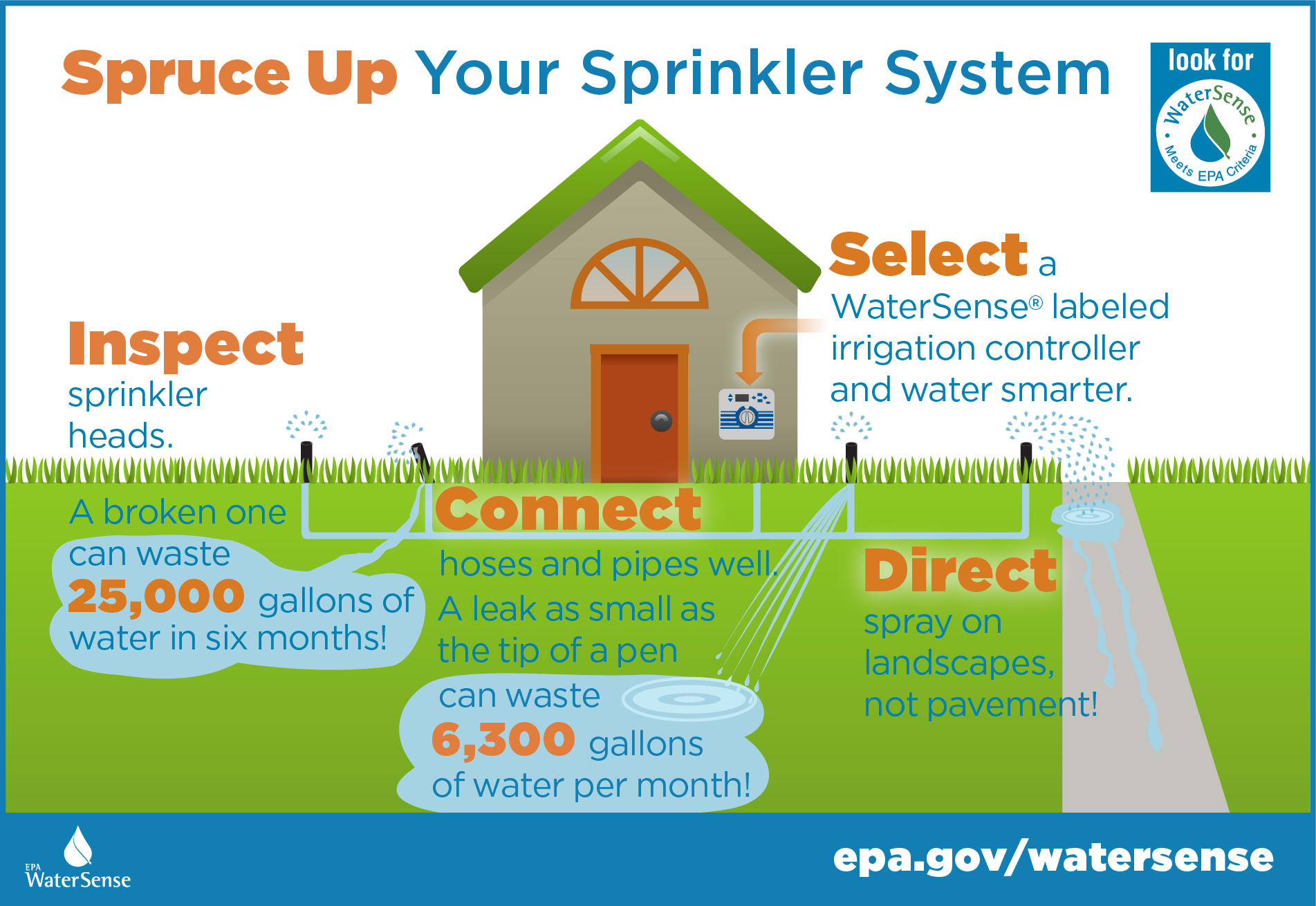

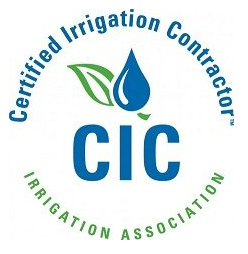

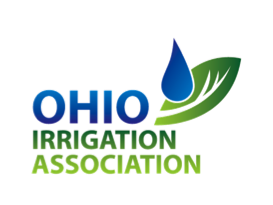
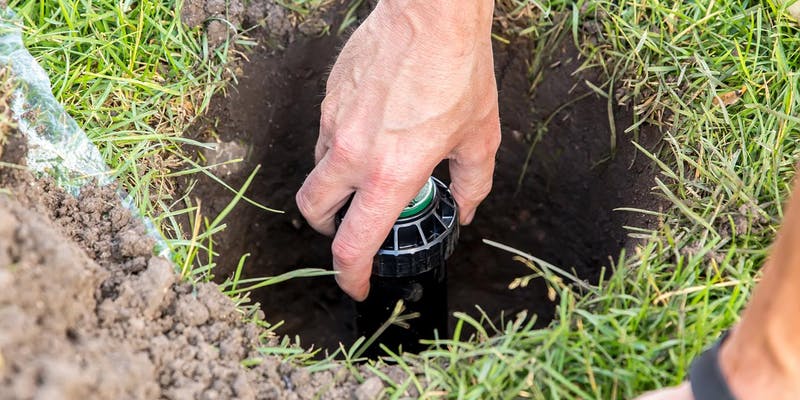


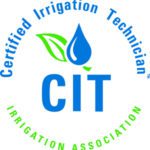
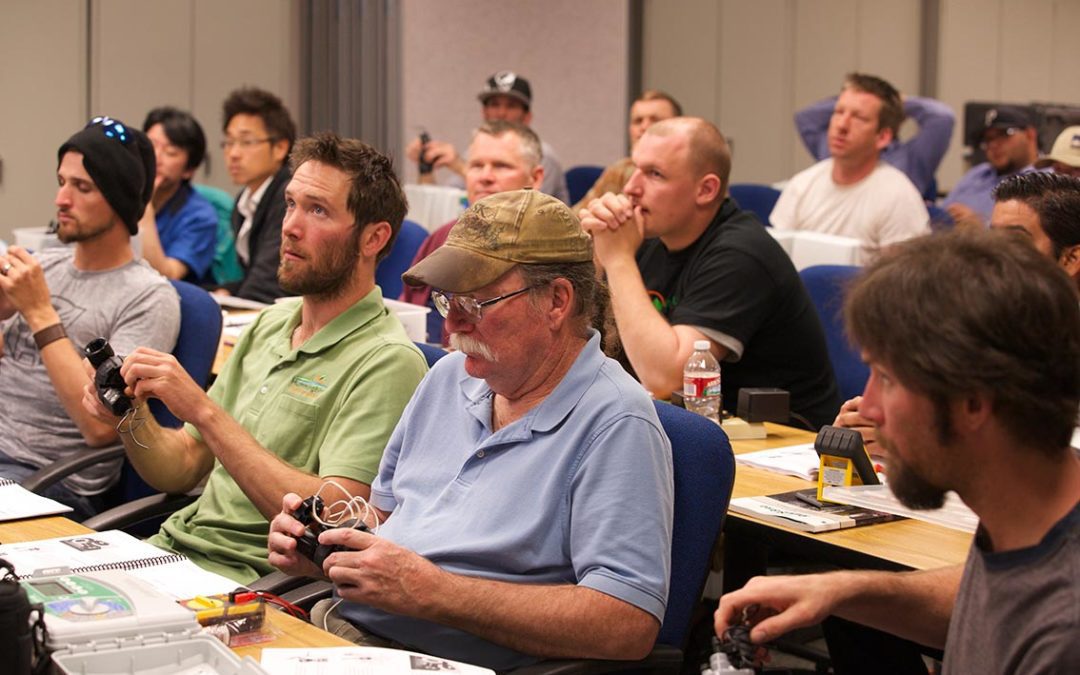
 Don’t miss out on this opportunity to add instant credibility to employers and increase your marketability, all while demonstrating your commitment to efficient water management!
Don’t miss out on this opportunity to add instant credibility to employers and increase your marketability, all while demonstrating your commitment to efficient water management! This entails knowing the limitations of different piping systems and understand basic hydraulics, in order to properly cut and join pipe.
This entails knowing the limitations of different piping systems and understand basic hydraulics, in order to properly cut and join pipe.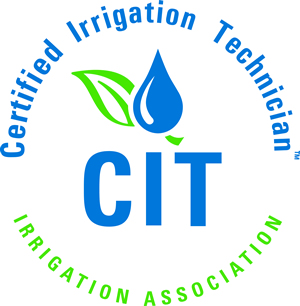

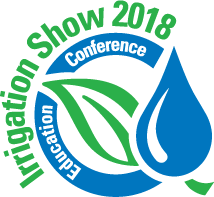
 Extended Floor Hours
Extended Floor Hours